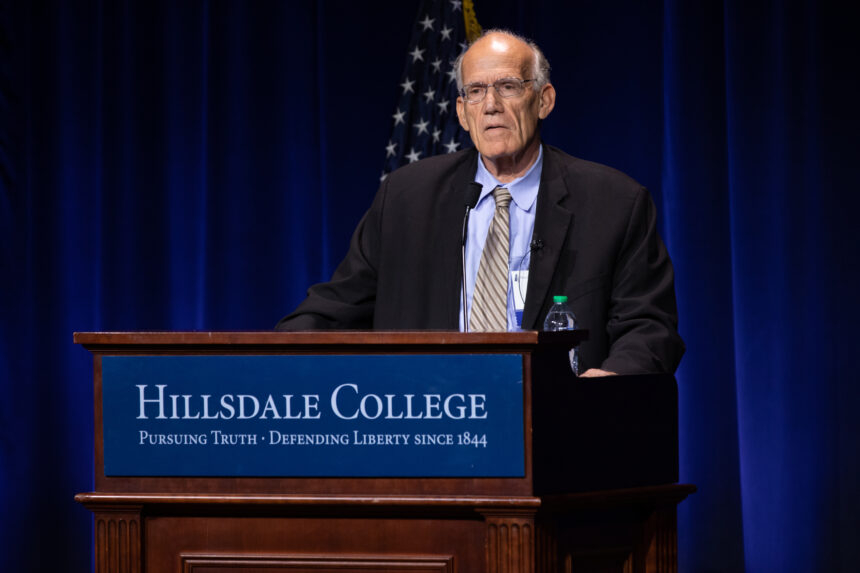Victor Davis Hanson is a senior fellow at the Hoover Institution at Stanford University, Buske distinguished fellow in history at Hillsdale, and the author of almost 30 books.
Who won the recent Republican presidential debate?
Certain people are kind of boilerplate and detract from the debate because they don’t have a realistic chance. Essentially, they’re down now to four candidates. Ramaswamy, DeSantis, Haley, and maybe Pence. Of those four, Haley improved herself just by her optics. DeSantis did what he had to do, and that was be viable. Tim Scott, I think he’s not been able to translate his inspirational personal story and an effective blueprint of what he’d actually do. Mike Pence, I think, was the loser of that debate. I don’t think he helped himself at all. Ramaswamy for the first 10 minutes was impressive with his rhetoric and his confidence and his apparent mastery of the facts, but after a while, he kind of became grating with his bullying and back and forth.
What do you think about Trump’s absence from the debate?
It was very effective the first time, but he can’t do that every time. In other words, he can’t time a Tucker interview, it’s gonna get stale. You can do that one time. So he’s either going to have to reenter the debates, or he’s going to have to come up with alternate venues that give him face time or playtime.
Do you have a piece of wisdom to share with Hillsdale students?
I always tried to have a professional code, and by that I meant if I said I was going to be somewhere, I was there. If I said I was going to teach, no matter what, I taught. I’ve been writing two columns a week since 2002. I haven’t missed one yet. I think I’ve had seven major operations in that period, but my attitude was I have to do the job. If you do that enough, you get a reputation of reliability. Second, I’ve always had the idea that whether we know it or not, even in the humanities, there is a competitive nature. There are so many days, so many hours in a day, and I have average or above average intelligence. I feel that if I spend a lot of time writing and reading, there’s not going to be too many people who work harder than I do. So, work very hard, have a professional ethos, and you will be surprised by the windows of opportunity that open.
When you aren’t working, how do you spend your time?
I have a farm of 43 acres, so I usually do yard work or work on some of the old buildings. We have some electricians that are wiring and rewiring, and I help them, and then I have to check on the renter, and so I do things on the weekends that they don’t do. And then I have a place way up high in the Sierra Nevada Mountains, so I go up there.
How often do you write?
I have one syndicated column a week and one larger column for American Greatness, and then I write three articles for my website. I’m writing about 5,000 words a week, and I’m usually working on a book on weekends.
![]()

